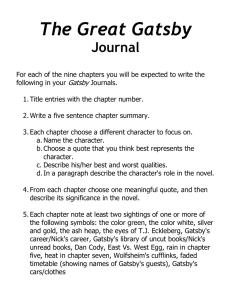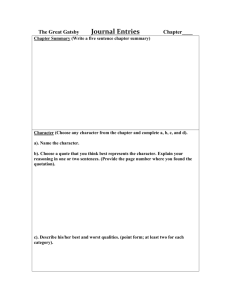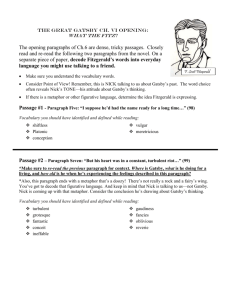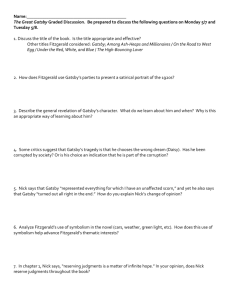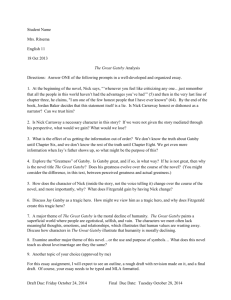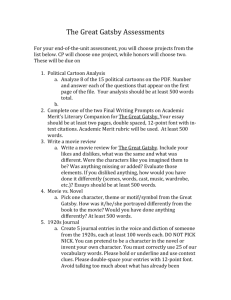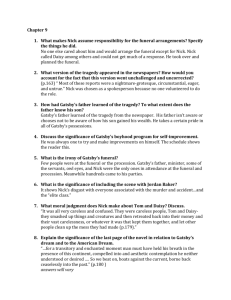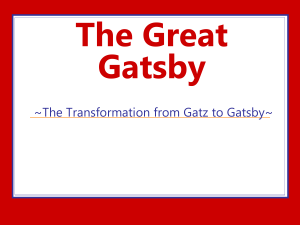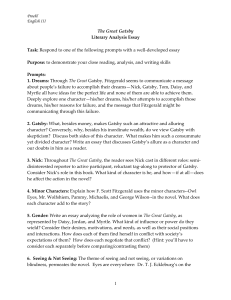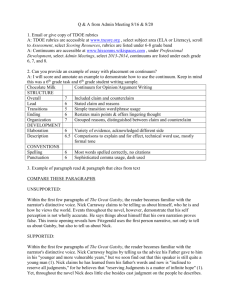The Greatness of Gatsby
advertisement
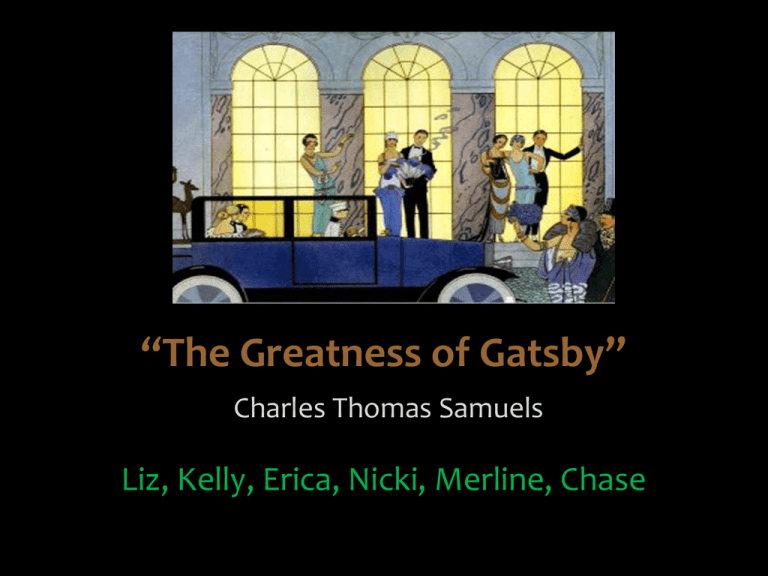
“The Greatness of Gatsby” Charles Thomas Samuels Liz, Kelly, Erica, Nicki, Merline, Chase MAJOR THEME: • Charles Thomas Samuels examines one man’s faith that all things are possible, and that “desire can ever be gratified,” until his life’s end. Nick’s point of view as the protagonist is critical to this portrayal. AUTHOR’S PURPOSE: • Samuels suggests that a “triumph of language” is achieved in Fitzgerald’s The Great Gatsby, both in the most celebrated passages and beyond. SYNTACTICAL FLUENCY: • Excellent word choice and organization • Flowing transitions from sentence to sentence and paragraph to paragraph • Ample repetition reinforces concepts • Parallel structure creates easy reading • Few but pointed textual quotes illustrate ideas • Detailed explication of symbolism and blindness • Provoking exploration of psyches of primary characters • Major points readily apparent • Adeptly references other authors • Multiple literary allusions concerning Gatsby • Fitzgerald’s creation of “Lyric Poem” MAJOR POINTS: • Celebration of language and literary art • Excellent management of point of view: Nick’s objectivity and involvement • Nick’s self-discovery: an outsider writing about Gatsby’s experiences • Ambivalence toward Gatsby: contradictions, fears, and judgments • Book’s tone: moral, protective, sympathetic • Economy of joys and sorrows via pervasive symbolism: setting • Gatsby mansion and parties: “universe of ineffable gaudiness” • Blindness: eyes of Dr. Eckleburg and major characters • Debasement of life: character flaws • Folly of American Dream: Gatsby’s “greatness” and beliefs OUR OPINIONS: • Theme and Purpose • Syntactical Flow • Nick’s Point of View • Symbolism and Eckleburg’s Blindness • Characters’ Blindness and Debasement • American Dream: Gatsby’s Greatness

